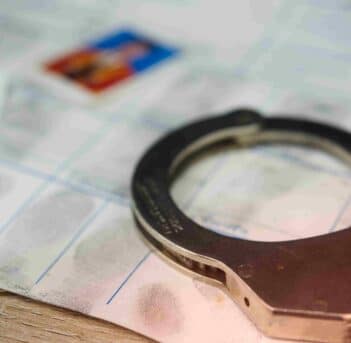
Serving People Throughout Colorado
Call Us For Free Consultation:
If you are under 18 years old, arrested, and face drug charges in Colorado, you will be prosecuted in Juvenile Court. Rather than facing a criminal conviction as adults do, you face delinquency proceedings.
Most juvenile drug cases are resolved through plea bargains; however, just like adults, those under 18 have the right to a trial. If you move forward with a trial, it is called an adjudicatory hearing and occurs in juvenile court. If you are found delinquent (by losing the hearing or taking a plea deal), the court will impose penalties based on the seriousness of your crime and if you have a prior record.
Just because you are not going to “adult” court does not mean these charges are less serious. Because of the potential penalties a drug charge can have, it is recommended that you hire a Juvenile criminal defense attorney.
In Colorado, juveniles can face various drug charges, each with its legal implications and consequences. Understanding these common charges is crucial for parents and guardians to help guide their youth through potential legal challenges.
One of the most frequent charges among juveniles is the possession of controlled substances. This includes illegal drugs like marijuana (beyond the legal possession limit for minors), cocaine, heroin, or unauthorized prescription medications. The severity of the charge often depends on the type and quantity of the substance found.
Juveniles may also face charges for distributing drugs or possessing drugs with the intent to distribute. This charge is more severe than simple possession and suggests that the juvenile was involved in the sale or distribution of drugs, not just their use. The penalties can be more severe, especially if the distribution occurs near schools or other areas where minors frequent.
Another common charge is possession of drug paraphernalia. This includes any equipment that can be used to ingest, prepare, or store illegal drugs, such as pipes, bongs, or syringes. Even if no drugs are found, the possession of paraphernalia alone can lead to legal consequences.
Prescription drug abuse is also a growing concern. Juveniles may face charges for possessing prescription medications without a legal prescription, especially if they are drugs known for abuse, like painkillers or ADHD medications.
The consequences of a juvenile drug charge conviction in Colorado vary widely depending on the nature of the offense, the juvenile’s previous record, and other case-specific factors. Families and juveniles need to understand the potential penalties, as they can significantly impact a young person’s future.
For more severe drug charges, such as distribution or possession of large quantities of controlled substances, juveniles may face detention in a juvenile facility. The length of detention can vary, but it often serves as a means of rehabilitation. In less severe cases, probation may be assigned, during which the juvenile must adhere to certain conditions, like regular check-ins, curfews, and possibly drug testing.
Colorado often focuses on rehabilitation rather than punishment for juvenile offenders. Diversion programs are common, especially for first-time offenders or those charged with minor offenses. These programs aim to educate and rehabilitate rather than incarcerate, involving counseling, community service, and drug education classes.
In some instances, juveniles might be required to pay fines or engage in community service. Fines can financially burden the family, while community service aims to integrate the juvenile positively into the community.
A drug charge conviction can impact a juvenile’s educational opportunities, such as college admissions and scholarship eligibility. It can also affect future employment prospects, as some employers conduct background checks that reveal juvenile records.
In Colorado, there is an opportunity to seal juvenile records, which can mitigate long-term consequences. This process is not automatic and requires legal action, emphasizing the importance of consulting with a juvenile criminal defense attorney.
When facing juvenile drug charges in Colorado, there are several defense strategies that a skilled juvenile criminal defense attorney might employ. These defenses are crucial in protecting the rights of the juvenile and can significantly impact the outcome of the case.
One common defense is challenging the legality of the search and seizure that led to the discovery of drugs. The Fourth Amendment protects against unreasonable searches and seizures. If law enforcement violated this right, the evidence obtained could be deemed inadmissible in court.
Another defense is disputing actual possession. The prosecution must prove that the juvenile had control over the substance. If the drugs belonged to someone else or were found in a location accessible to multiple people, this could weaken the prosecution’s case.
Entrapment occurs when law enforcement induces a person to commit a crime they would not have otherwise committed. If an officer coerces a juvenile into possessing or distributing drugs, this could be a viable defense.
In some cases, a juvenile might genuinely be unaware that they were in possession of illegal drugs, perhaps mistaking them for a legal substance. This defense focuses on the absence of knowledge or intent.
Duress involves a scenario where the juvenile was forced or threatened into committing a drug-related offense. Proving duress can be challenging, but it can be a strong defense if there is evidence of coercion or threats.
Employing the right defense strategy depends on the specifics of the case. A knowledgeable juvenile criminal defense attorney can evaluate the circumstances and determine the most effective approach to protect the juvenile’s rights and future.
If you are facing drug charges as a juvenile, seek guidance from a criminal defense attorney. At The Law Offices of Steven J. Pisani, we can help you establish a strong defense.
